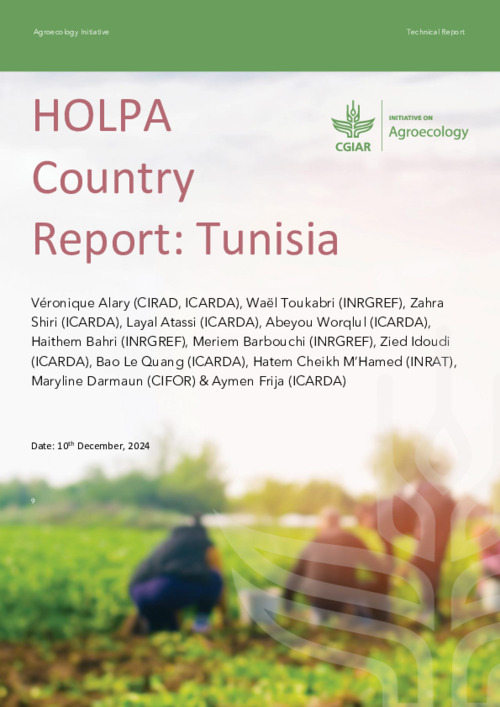Under Work Package 2 of the CGIAR Research Initiative on Agroecology, "Evidence-Based Agroecology Assessments", participatory monitoring and modelling research was conducted to generate usable evidence on agroecological transitions, drawing on scientific and local knowledge. This research focused on the conditions (context assessment) and potential changes (using agroecology adherence and a holistic performance assessment tool) in food, land and water systems in terms of ecosystem health, biodiversity, resilience, social equity, profitability, water productivity and dietary diversity. This report provides robust insights into agroecological adherence and performance indicators in a living landscape in Tunisia (Kef-Siliana transect). Specifically, the main findings show that soil health is central to the overall resilience of mixed farming systems in the semi-arid zones of Tunisia. However, biodiversity was regionally more diverse, with tree diversity being particularly important in some areas. The results also show that farmers faced economic challenges that were exacerbated by the drought, with limited diversification of income sources. However, farmers have maintained relatively strong cultural ties to traditional diets. From a social perspective, indicators of governance and participation remain relatively low and need significant improvement. Overall, the results indicate a moderate alignment with agroecological principles, with variability between communities along the transect, especially in social and institutional aspects.
















